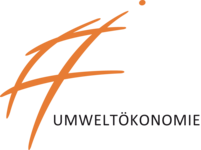Drinking and Protecting: A Market Approach to the Preservation of Cork Oak Landscapes
Journal of Environmental Policy & Planning. Bd. 13. H. 2. Informa UK Limited 2011 S. 179 - 196
Erscheinungsjahr: 2011
ISBN/ISSN: 1523-908X
Publikationstyp: Zeitschriftenaufsatz
Sprache: Englisch
Doi/URN: 10.1080/1523908x.2011.576549
| Geprüft | Bibliothek |
Inhaltszusammenfassung
With the availability of new techniques to close wine bottles avoiding the risk of ‘corky’ taste, the tradition of closing wine bottles with cork stoppers is on the retreat. As a consequence, the Mediterranean cork oak forests with their rich biodiversity are endangered, since their cultivation is not profitable anymore. This paper explores the viability of a market approach to the preservation of these ecologically valuable landscapes. In an internet-based contingent valuation survey, we ass...With the availability of new techniques to close wine bottles avoiding the risk of ‘corky’ taste, the tradition of closing wine bottles with cork stoppers is on the retreat. As a consequence, the Mediterranean cork oak forests with their rich biodiversity are endangered, since their cultivation is not profitable anymore. This paper explores the viability of a market approach to the preservation of these ecologically valuable landscapes. In an internet-based contingent valuation survey, we assess wine consumers' willingness to pay (WTP) a higher price for wine bottles closed with high-quality cork stoppers (with a low risk of tainting the wine) instead of buying wine bottles with alternative stoppers in order to preserve the cork oak landscapes. We find that though many wine consumers have experience with tainted wine, they are, nevertheless, willing to buy wine with high-quality cork stoppers at higher prices. Their average WTP is, however, not sufficient to cover the additional costs of these stoppers. Thus, we propose a financing mix of market returns and government subsidies for preserving the cork oaks. As a precondition for this market approach to be successful, bottles with high-quality cork stoppers must be clearly identifiable in the shops, and consumers must be informed about the ecological consequences of supporting the cork production.» weiterlesen» einklappen
Klassifikation
DFG Fachgebiet:
Wirtschaftswissenschaften
DDC Sachgruppe:
Wirtschaft
